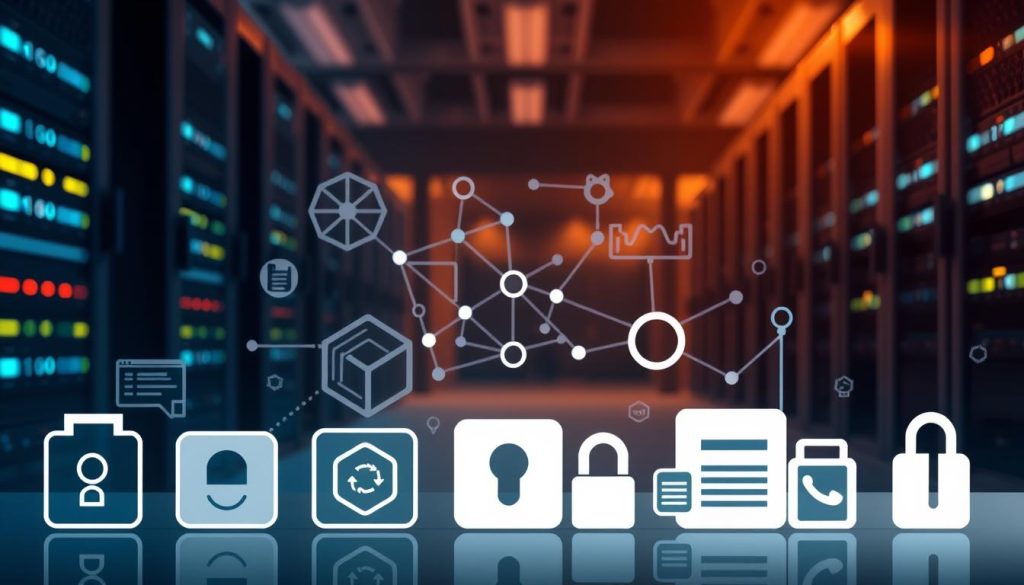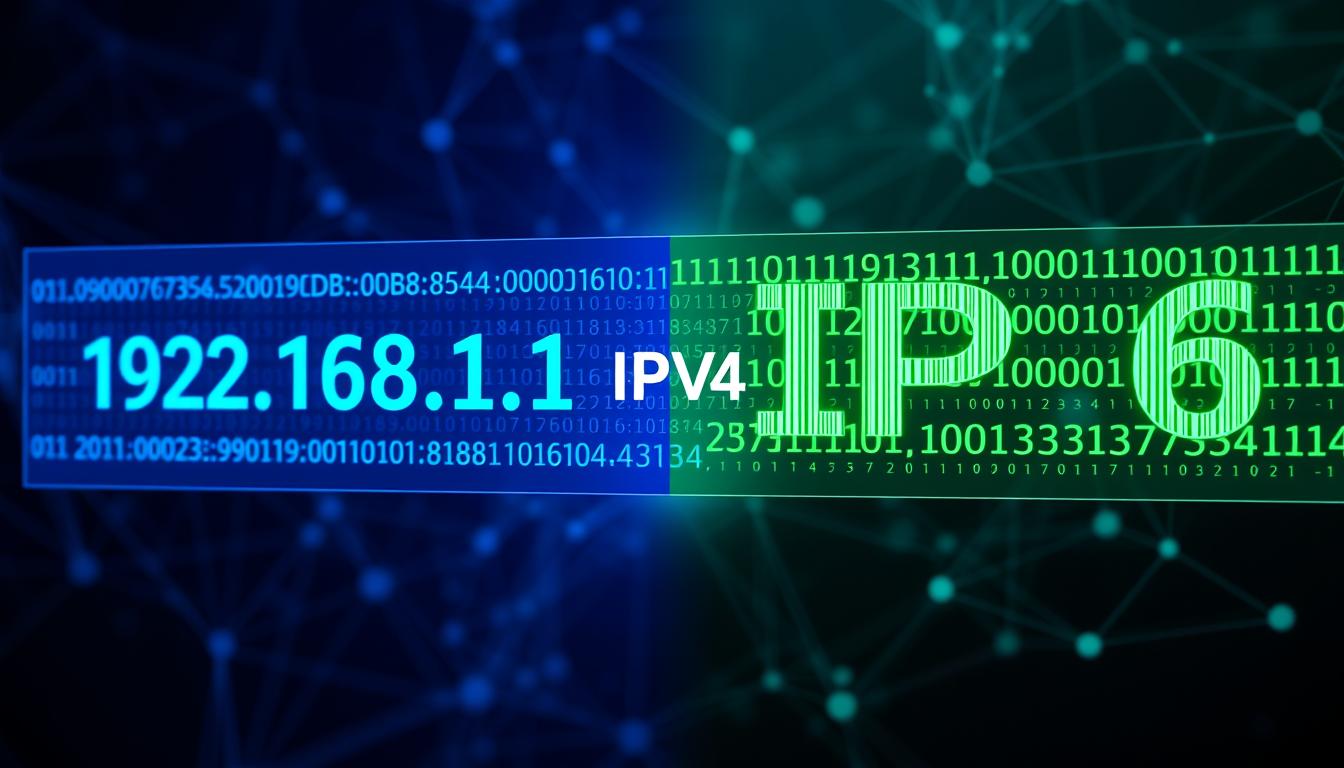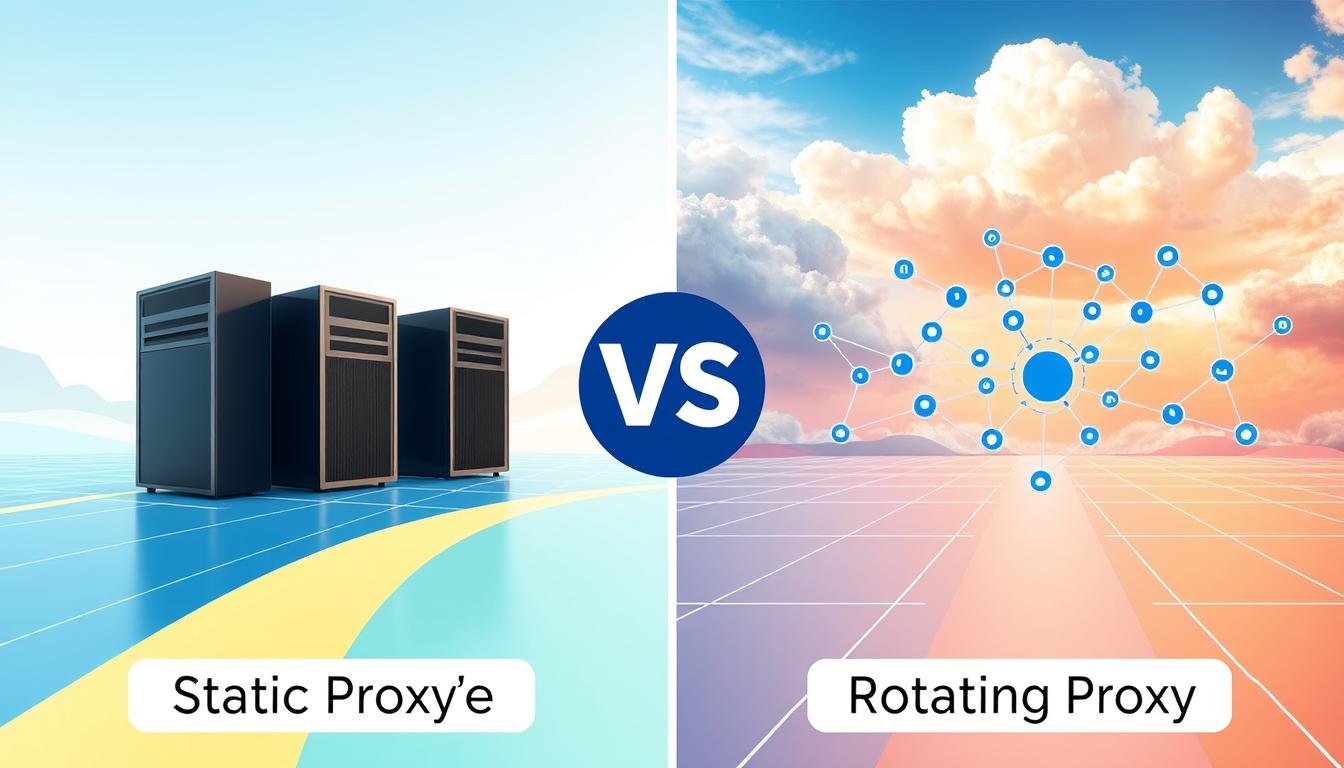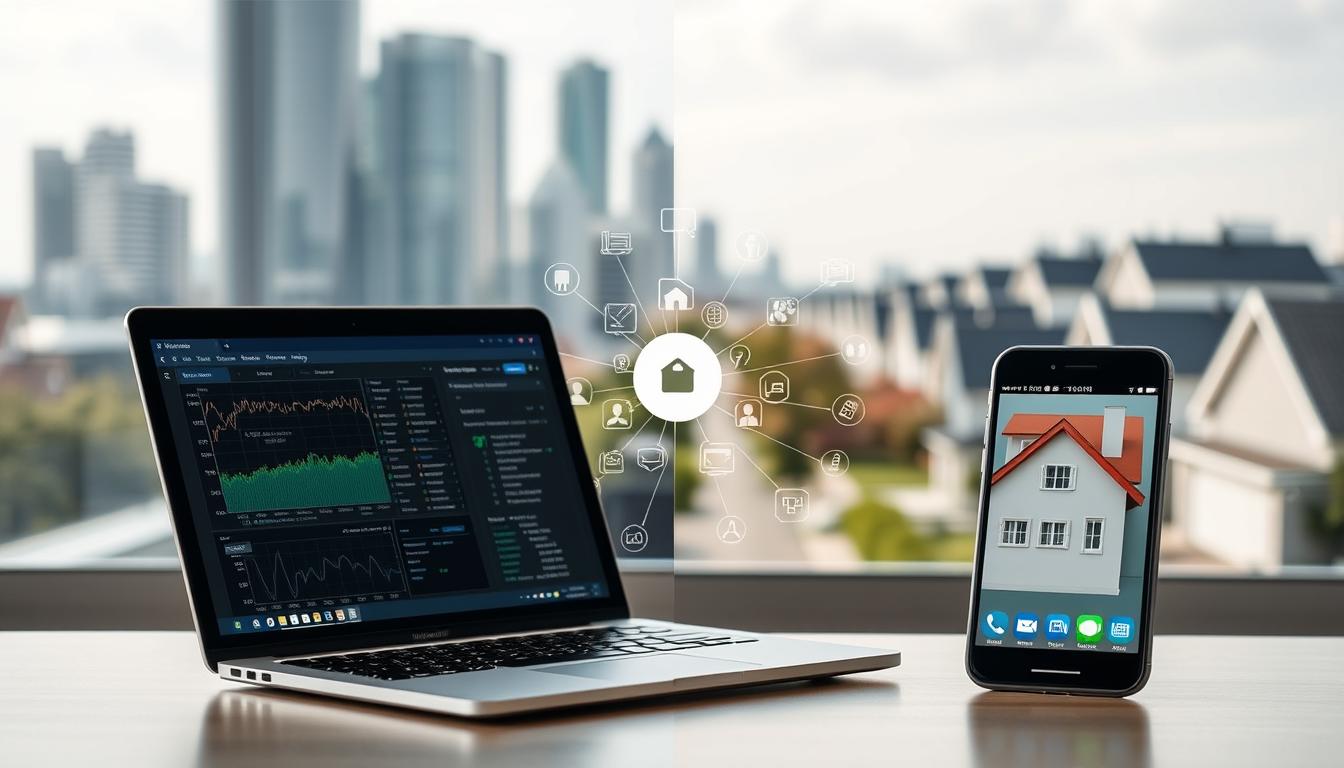FTC disclaimer: This post contains affiliate links and I will be compensated if you make a purchase after clicking on my link.
Did you know that over 80% of internet users have their personal data exposed through unsecured connections each year? This startling reality makes choosing the right online privacy tool more critical than ever.
When you’re looking to enhance your internet experience, you face an important decision between two popular technologies. Both serve as intermediaries between your device and the web, but they operate quite differently.
On one hand, you might need a simple solution for accessing geo-restricted content. On the other hand, you may require comprehensive security for all your online activities. Understanding these distinctions helps you make informed choices.
The variations between these options extend beyond basic functionality. They impact your browsing speed, security levels, and overall internet experience. This guide will help you navigate these important differences.
Neither technology represents a universally superior choice. Each excels in specific scenarios depending on your needs. Our comprehensive comparison will walk you through every aspect to determine which solution best serves your requirements.
Key Takeaways
- Both technologies act as intermediaries but serve different primary purposes
- Security levels vary significantly between the two options
- Your specific needs determine which solution works better for you
- Speed and performance differences impact your browsing experience
- Cost considerations play a role in your decision-making process
- Each technology has distinct advantages for particular use cases
- Understanding the core differences empowers smarter online choices
Introduction to Proxies
When you browse the web through a proxy, your connection takes a detour through an intermediate server. This technology serves as a gateway between your device and online resources. Understanding how these systems function helps you make informed decisions about your online privacy.
What is a Proxy?
A proxy acts as an intermediary that processes your web requests. It sits between your computer and the internet, handling your traffic. The server receives your requests and forwards them to their destinations.
This arrangement means websites see the proxy’s IP address instead of yours. Your real location remains hidden from the sites you visit. The intermediary handles the data exchange on your behalf.

How Do Proxies Work?
Your device sends a request to the proxy server first. The server then contacts the target website for you. It retrieves the information and sends it back to your computer.
This process creates a separation between you and the internet. The proxy can filter content or cache frequently accessed data. Your internet service provider can still see the unencrypted traffic.
| Feature | Proxy Server | Standard Connection | Benefit |
|---|---|---|---|
| IP Address Visibility | Proxy’s IP shown | Your real IP shown | Basic anonymity |
| Data Encryption | Typically none | None | Faster speeds |
| Configuration Level | Application-specific | System-wide | Selective use |
| Traffic Routing | Through intermediary | Direct connection | Content filtering |
Proxy servers operate at the application level rather than system-wide. You configure them for specific browsers or programs. This selective approach makes them ideal for targeted browsing tasks.
Proxy Technologies and Types
Understanding the technical specifications of internet intermediaries helps you select the right tool for specific online tasks. Different technologies employ distinct methods to route your connections.
Types of Proxies
You’ll find several categories designed for various purposes. HTTP options handle basic web traffic through standard protocol requests.
HTTPS versions extend this functionality with encrypted connections for secure websites. SOCKS technology operates at a lower network level for broader application support.

Proxy Protocols
Protocols define how intermediary servers communicate with your device and destination resources. They determine compatibility and functionality across different applications.
| Protocol Type | Primary Function | Encryption Level | Common Applications |
|---|---|---|---|
| HTTP | Web page requests | None | Basic browsing |
| HTTPS | Secure connections | SSL/TLS | Online banking |
| SOCKS5 | Various traffic types | Optional | Gaming, streaming |
TCP/UDP Proxies
TCP-based connections ensure reliable, ordered delivery of data packets. This makes them ideal for applications where information integrity matters most.
UDP options prioritize speed over reliability for real-time applications. They work well for streaming and gaming where occasional packet loss is acceptable.
Exploring Proxy IP Types and Detectability
Your choice of server IP type can determine whether websites recognize your traffic as legitimate or artificial. Different categories offer unique advantages for specific browsing scenarios.
Proxy IP Types
Datacenter options provide speed and affordability but originate from commercial server farms. Residential addresses come from actual internet service providers to home users.
Mobile alternatives route through carrier networks, appearing as smartphone connections. Each type serves distinct purposes based on your needs.

Transparent Proxy
Transparent intermediaries don’t conceal their presence from destination websites. They forward your real IP address in request headers.
This makes them unsuitable for anonymity purposes. Anonymous options hide your address but reveal proxy usage, while elite versions conceal both completely.
Detectability of Proxies
Websites employ various methods to identify intermediary traffic. They analyze HTTP headers and check addresses against known proxy databases.
Traffic patterns that differ from typical user behavior can trigger detection. When identified, sites may block access or present CAPTCHAs.
You can minimize detection risks by selecting high-quality residential options. Regular IP rotation and proper header handling also help maintain access.
Common Proxy Applications and Limitations
The practical applications of traffic routing technologies extend to business operations and personal browsing needs. These tools serve specific purposes where full-scale security solutions might be unnecessary.
Common Uses of Proxies
You’ll find these intermediaries particularly valuable for data collection tasks. They help distribute requests across multiple IP addresses when gathering information from websites.
Many organizations deploy these systems to monitor employee internet activity. They filter unwanted content and enforce security policies across corporate networks.

When you need to access region-locked services, these servers provide location flexibility. They route your connection through different countries to bypass geographical restrictions.
Schools and workplaces often implement these tools for network management. They help control bandwidth usage while maintaining access to necessary resources.
Proxy Limitations
Most intermediary services lack encryption for your transmitted data. Your internet service provider can still see your online activity through these connections.
Reliability issues frequently affect free or low-quality options. You may experience slow speeds and frequent disconnections during important tasks.
Configuration typically works on an application-by-application basis. This requires separate setup for each program rather than system-wide protection.
Privacy concerns arise since server operators can monitor unencrypted traffic. They potentially log your browsing history and sensitive information.
Introduction to VPNs
Imagine creating your own private internet highway where all your data travels securely encrypted. This is essentially what a virtual private network provides for your online experience.
What is a VPN?
A virtual private network establishes a protected connection between your device and the internet. This technology creates a secure tunnel that shields your entire online activity.
When you activate this service, it encrypts all information leaving your computer or phone. Your sensitive data remains confidential as it travels through this private network.
How Do VPNs Work?
Your device connects to a remote server using special authentication credentials. Once established, this connection encrypts everything automatically.
The system operates at the operating system level rather than per application. This means all your internet traffic routes through the secure tunnel without individual setup.
This comprehensive approach hides your real IP address completely. It replaces it with the server’s address while encrypting your actual data content.
You benefit from protection against various monitoring attempts. Your internet service provider, network administrators, and external threats cannot see your activities.
VPN Technologies and Security Features
The digital armor protecting your online activities relies on sophisticated security technologies. These systems combine multiple layers of protection to create robust safeguards for your information.
Modern privacy services employ advanced methods to keep your data confidential. Understanding these technical components helps you appreciate their protective capabilities.
Encryption and Tunneling Protocols
Your information travels through secure pathways using specialized protocols. These systems scramble your data into unreadable code during transmission.
OpenVPN represents one of the most trusted options available today. This open-source protocol balances excellent security with reliable performance across various connections.
WireGuard offers a modern approach with streamlined code and faster speeds. Its efficient design maintains strong protection while improving connection performance.
IKEv2/IPsec protocols excel in mobile environments. They quickly re-establish connections when switching between Wi-Fi and cellular networks.
| Protocol | Security Level | Best For | Encryption Standard |
|---|---|---|---|
| OpenVPN | Excellent | General use | AES-256 |
| WireGuard | Very High | Speed needs | ChaCha20 |
| IKEv2/IPsec | High | Mobile devices | AES-256 |
Types of VPNs
Remote access services connect individual devices to secure networks. This approach creates protected tunnels for personal or business use from any location.
Site-to-site systems link entire networks together through encrypted pathways. Organizations use these to securely share data across multiple office locations.
The combination of tunneling technology and strong encryption ensures comprehensive protection. Your data remains secure throughout its entire journey between devices and servers.
Navigating VPN Protocol Detection and Uses
Network administrators and streaming platforms have developed methods to identify when users employ privacy services. These detection systems analyze various aspects of your connection to distinguish protected traffic from regular browsing.
VPN Protocol Detection and Blocking
Sophisticated networks can recognize encrypted traffic patterns. They examine connection signatures and server characteristics.
Deep packet inspection technology analyzes your internet traffic metadata. This helps identify when you’re using a privacy service even with encryption active.
Streaming services maintain databases of known server addresses. They block access when detecting these IP ranges.
Common Uses of VPNs
Privacy protection remains a primary reason for using these services. They prevent monitoring of your online activity by various entities.
Accessing region-restricted content becomes possible with location masking. Your traffic appears to originate from different geographic areas.
Public Wi-Fi security improves dramatically with encrypted connections. Business professionals rely on these services for remote access to company resources.
| Detection Method | How It Works | User Impact | Countermeasures |
|---|---|---|---|
| IP Address Analysis | Checks against known server databases | Blocked access to services | Rotating IP addresses |
| Traffic Pattern Recognition | Analyzes connection behavior | Slower connection speeds | Obfuscation protocols |
| Protocol Signature Detection | Identifies encryption patterns | Service restrictions | Stealth VPN technologies |
| Port Blocking | Closes common connection ports | Connection failures | Alternative port usage |
proxy vs VPN: Key Differences
The digital landscape offers two distinct paths for managing your online presence. Understanding their core distinctions helps you select the right tool for your specific needs.
These technologies approach your internet connection differently. One simply redirects your traffic while the other creates a secure tunnel for all your data.
Comparative Analysis of Features
The fundamental difference lies in how they handle your information. Intermediary servers reroute connections without encryption, while private networks encrypt everything automatically.
Implementation scope varies significantly between these solutions. One protects specific applications you configure, while the other secures your entire device’s internet activity.
| Feature | Intermediary Server | Encrypted Tunnel | Impact on User |
|---|---|---|---|
| Data Protection | No encryption typically | Full encryption always | Security level difference |
| Privacy Level | Hides IP address only | Hides IP and content | Comprehensive privacy security |
| Configuration | Application-specific | System-wide | Ease of use difference |
| Performance | Faster speeds | Some latency | Speed vs security trade-off |
| Traffic Coverage | Selected programs only | All internet activity | Protection scope differences |
Security, Privacy, and Performance
Your privacy security improves dramatically with encrypted solutions. They conceal both your location and your actual data content from potential observers.
Performance considerations reveal important trade-offs. Simpler technologies offer faster connections, while secure tunnels provide comprehensive protection with minimal speed impact in modern services.
Your choice ultimately depends on whether you prioritize speed or complete data safety. Each technology serves different scenarios based on your specific requirements.
When a Proxy is Better than a VPN
Specialized data collection operations often benefit from focused intermediary services. These tools excel in specific scenarios where targeted functionality matters more than comprehensive protection.
Advantages in Specific Scenarios
You should use proxy services when handling large-scale data collection. They distribute requests across multiple IP addresses effectively.
This approach prevents rate limits and blocks from single addresses. The technology excels for accessing geo-specific content from various locations simultaneously.
Proxy vs VPN for Web Scraping
For web scraping projects, these intermediaries provide essential functionality. They enable thousands of requests from different servers.
This mimics organic traffic patterns that prevent website detection. Residential and mobile options use real addresses from internet providers.
Why You Need a Proxy for Web Scraping
The advantage lies in maintaining multiple concurrent connections. You gather content from various sources simultaneously without detection.
Servers designed for scraping offer automatic rotation and session management. These features make them purpose-built tools for large-scale projects.
When testing regional website variations, these services allow quick address switching. This avoids the overhead of establishing new secure tunnels.
When VPN is Better than Proxy
In situations demanding ironclad digital protection, virtual private networks emerge as the clear winner. These services provide comprehensive security that safeguards your entire online experience.
You need this level of protection when handling sensitive information. Financial transactions and confidential communications require robust encryption to prevent interception.
Overcoming VPN Limitations
Modern services have addressed traditional concerns about speed reduction. Optimized protocols and extensive server networks maintain performance while providing full protection.
System-level operation eliminates application-specific configuration hassles. Your entire device receives automatic security without individual program setup.
Enhanced Security and Encryption
The encryption technology creates an impenetrable shield around your data. Every packet receives protection during transmission through secure tunnels.
This approach conceals your activities from internet providers and network monitors. Your privacy extends beyond simple location masking to complete activity protection.
| Security Feature | Virtual Private Network | Basic Protection | User Benefit |
|---|---|---|---|
| Data Encryption | Full content encryption | IP masking only | Complete privacy security |
| Connection Scope | All device traffic | Selected applications | Comprehensive coverage |
| Public Wi-Fi Safety | Encrypted tunnel | No data protection | Theft prevention |
| Remote Access | Secure network gateway | Basic routing | Business data protection |
| Privacy Level | Activity concealment | Location hiding | Complete anonymity |
Remote work scenarios particularly benefit from this enhanced security. Accessing corporate resources requires the robust protection that only encrypted tunnels provide.
“True digital privacy requires more than surface-level anonymity—it demands complete data protection from origin to destination.”
When using public networks in airports or coffee shops, this technology becomes essential. It prevents credential theft and activity monitoring by malicious actors.
Conclusion
Making the right decision for your digital privacy requires matching technology capabilities to your specific situation. Each service serves distinct purposes that align with different online activities and security needs.
When your priority involves simple IP masking for accessing region-specific content, proxy servers deliver speed and efficiency. These solutions work well for targeted tasks where encryption overhead isn’t necessary.
For comprehensive privacy security that protects all your internet traffic, VPN services provide essential encryption. This approach safeguards sensitive information across your entire device connection.
Your choice ultimately depends on whether you need application-specific functionality or system-wide protection. Consider your data sensitivity, budget constraints, and specific browsing requirements.
Selecting a reputable provider ensures reliable performance and transparent privacy policies. Understanding these differences empowers you to choose the optimal tool for your online activities.








